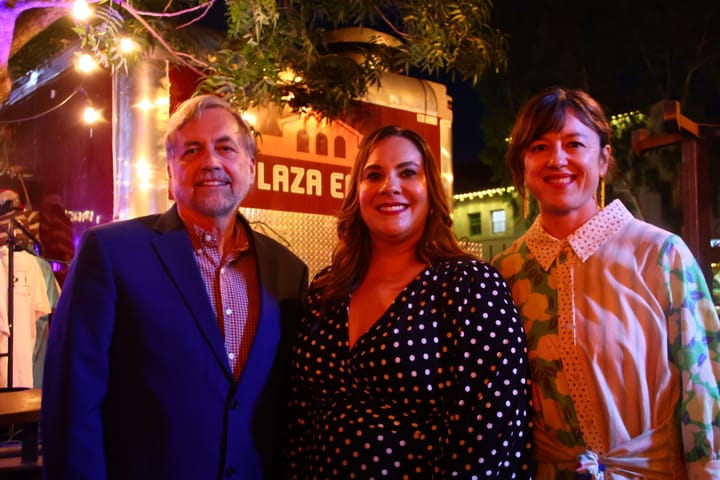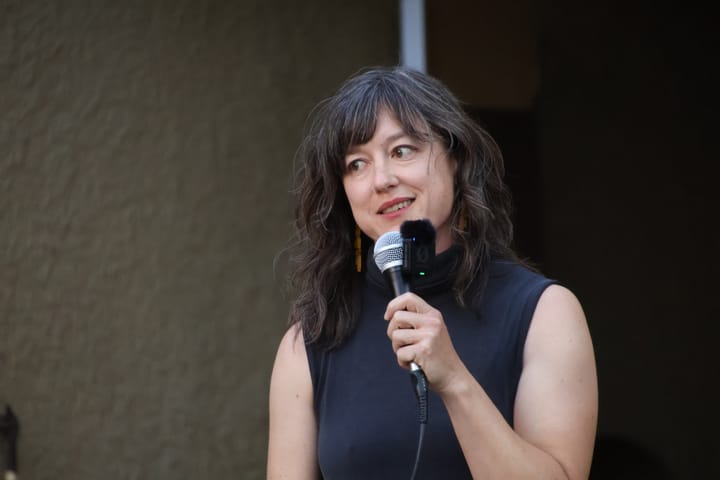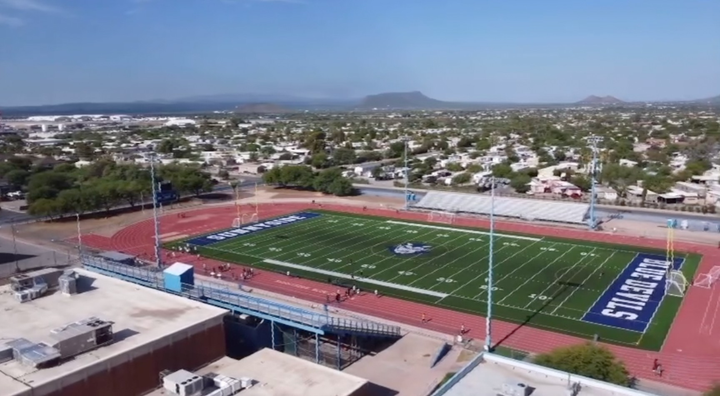Tolkoff focuses on solutions, not party in Ward 6
Jay Tolkoff is running for Tucson’s Ward 6 City Council, emphasizing practical solutions to housing, water, homelessness, and public transportation over partisan politics.
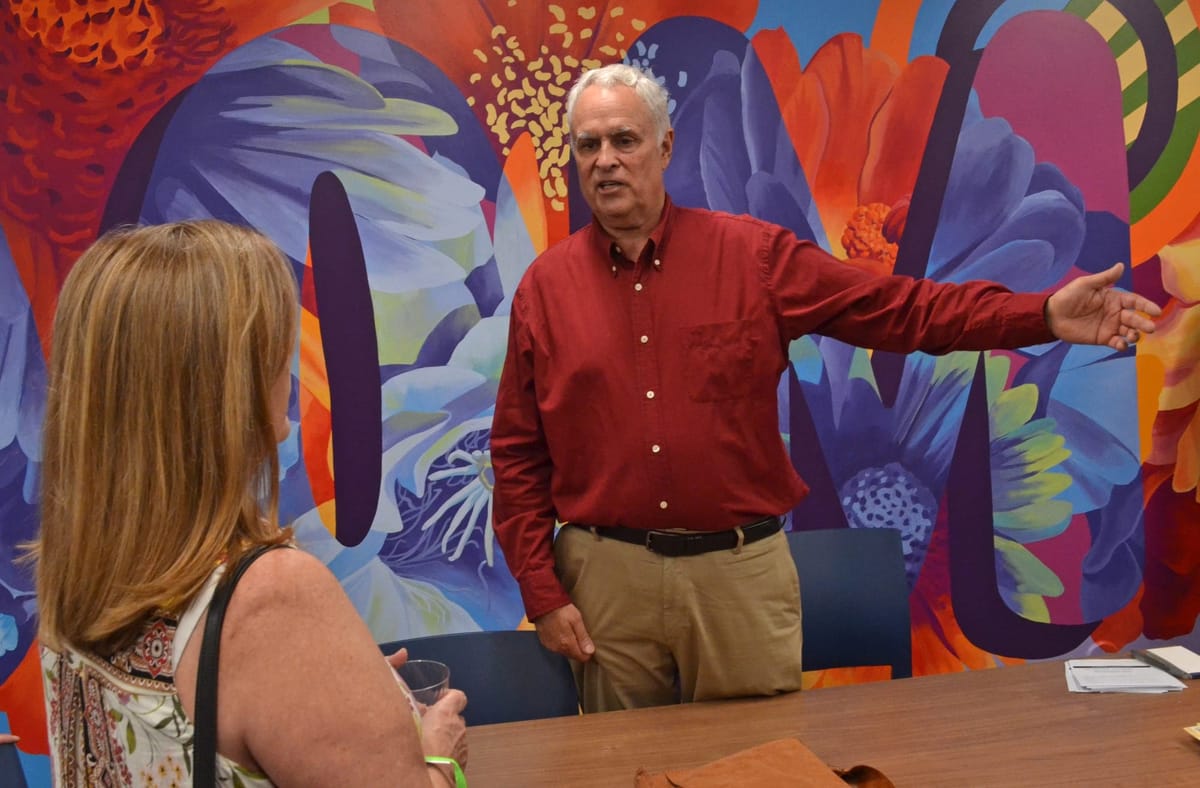
Jay Tolkoff is running as a Republican for Tucson’s Ward 6 City Council, but he says his campaign isn’t defined by party lines.
Facing Democrat Miranda Schubert, Tolkoff emphasizes tackling the city’s biggest challenges through practical solutions rather than partisan politics.
With a crowded Democratic primary, Tolkoff ran unopposed as a Republican. Democrat Karin Uhlich, who was appointed to fill the seat in May 2024 after Democrat Steve Kozachik stepped down, did not run.
“There was no path forward as a Democrat,” he told Tucson Spotlight, saying he didn’t fully align with Republican ideals but saw it as his best chance to advance to the general election.
He said he believes solutions to problems should not be divided along party lines.
After announcing his candidacy, Tolkoff said his son called and asked if he felt confident about his chances to win.
“I wouldn’t run if I didn’t think I have a good chance,” he said.

Tucson Spotlight spoke with candidates in each contested race about their views on the City Council’s role in addressing Tucson’s most pressing challenges, including housing, public transportation and water.
Tolkoff points to these issues as examples of challenges that require practical solutions rather than partisan thinking.
The lack of affordable housing continues to be a problem for Tucson, with the median price of a home hovering around $300,000.
“Housing is not a Republican or Democrat issue,” he said. “Our housing prices are not out of line for the region. The problem is, we don’t have a decent enough economy to give people enough of a wage to support it.”
Tolkoff said he spent considerable time thinking about why the housing market has shifted the way it has.
“The simple fact is that you can’t build a new house for less than you can buy an existing house,” he said. “If you can’t lower the cost of housing, the only answer is to create better opportunities for economic growth for individuals.”
Tolkoff believes the solution is to bring more manufacturing and innovation jobs to Tucson.
Beyond housing, Tolkoff says access to clean water and responsible management of Tucson’s watershed are among the city’s most pressing challenges.
This summer, Tucson residents protested the proposed Project Blue data center, raising concerns about its projected water usage and the strain it could place on the city’s already limited water supply.
But beyond large water consumers, residents are worried about access to clean drinking water and management of the watershed.
“Regina Romero, I’ve got to give her credit. Tucson has done a great job at conservation,” Tolkoff said.
But he said conservation is not enough to maintain the city’s supply of potable water.
“I have been told by some hydrologists that the amount of water underneath Tucson is comparable to the amount of water in Lake Michigan,” Tolkoff said.
Lake Michigan is the second-largest Great Lake by volume, with just under 1,180 cubic miles of water.
Over the years, some of the city’s wells have been contaminated with carcinogens and other hazardous chemicals from runoff by large industries and military installations, leaving significant portions of Tucson’s underground water undrinkable and sometimes unusable, Tolkoff said.
Tolkoff suggested that the Tucson City Council should do more to hold industries accountable and “hold their feet to the fire” to speed up reclamation of these contaminated sources.
He also points to homelessness as a critical challenge for Tucson, describing it not as a standalone problem but as a symptom of deeper economic and social issues.
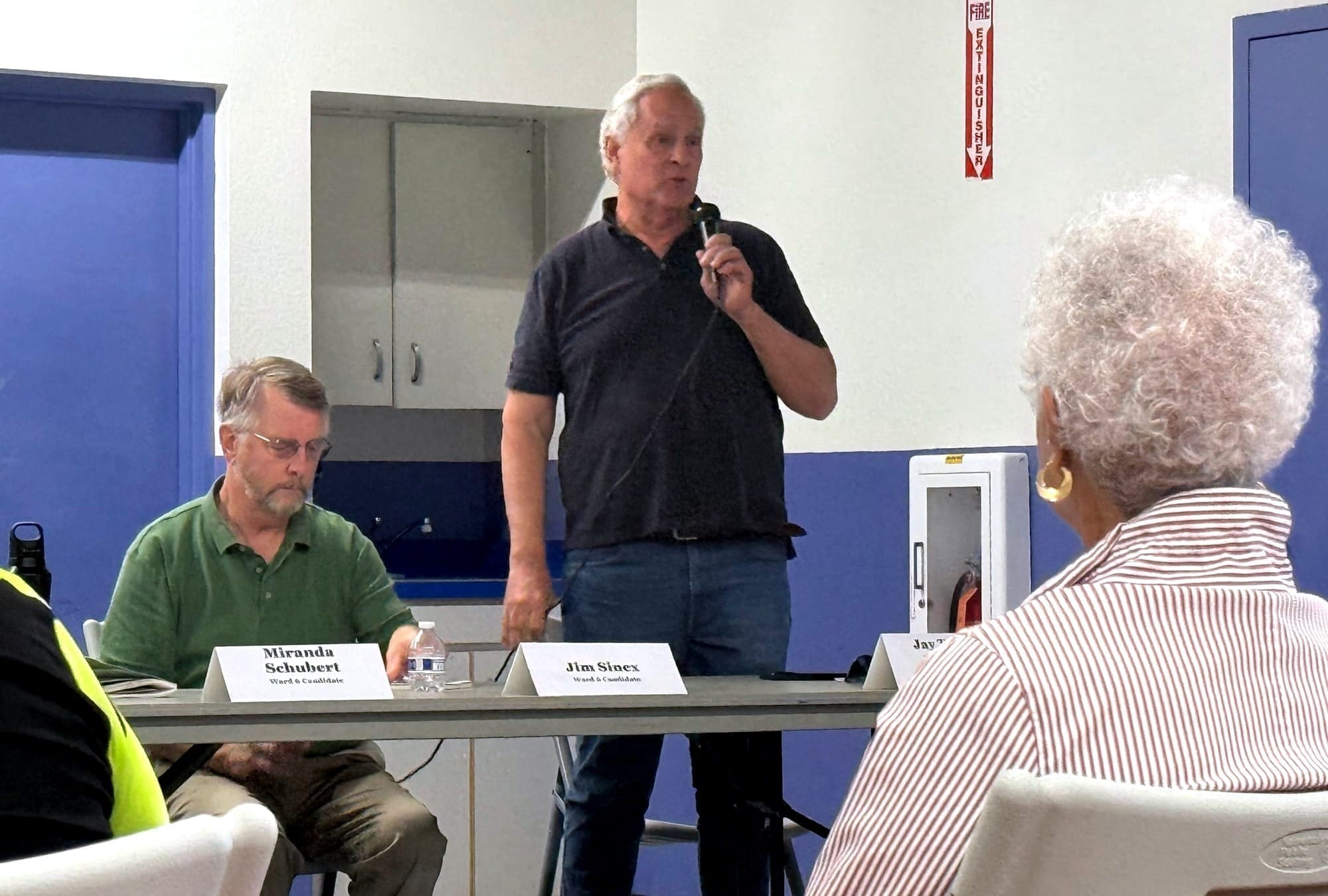
The city council has attempted to remedy the issue through solutions, many of which have sparked criticism from community groups and residents.
“Homelessness is not the problem. Homelessness is the symptom of many different problems,” Tolkoff said, adding that many people who fall into the broad category of “unhoused” have an underlying issue that led them to be there.
Some are elderly with no support, others struggle with mental illness or addiction, and some simply cannot afford a better quality of life. These factors can leave someone without a roof over their head. Tolkoff says the solutions are out there.
“Society is just going to have to bite the bullet,” he said. “There are ways, and it’s going to cost money, but that’s the only way you’re going to solve the problem.”
Another key concern for Tucson residents, Tolkoff said, is public transportation and how the city balances accessibility with safety and efficiency.
One of the city’s most controversial issues is its fare-free public transportation system, with residents raising concerns about crime at bus stops and on buses.
Tolkoff acknowledged that public transportation is the only option for some people, and while cost could be a barrier to some, changes need to be made.
He said reintroducing fares would likely reduce crime but suggested making exceptions, similar to how programs like food stamps and housing assistance support those with limited means.
“If you open up the mass transit to have complete, unfettered access to anybody, anytime without any requirements for them (to act) in a civilized or respectful manner, you wind up with situations like we have,” Tolkoff said.
Quentin Agnello is a journalism major at the University of Arizona and Tucson Spotlight intern. Contact him at qagnello@arizona.edu.
Tucson Spotlight is a community-based newsroom that provides paid opportunities for students and rising journalists in Southern Arizona. Please consider supporting our work with a tax-deductible donation.

